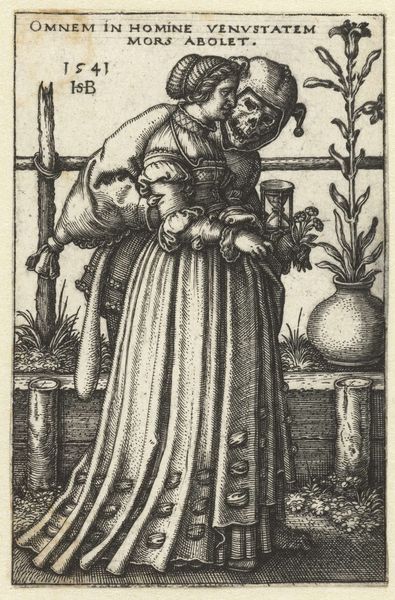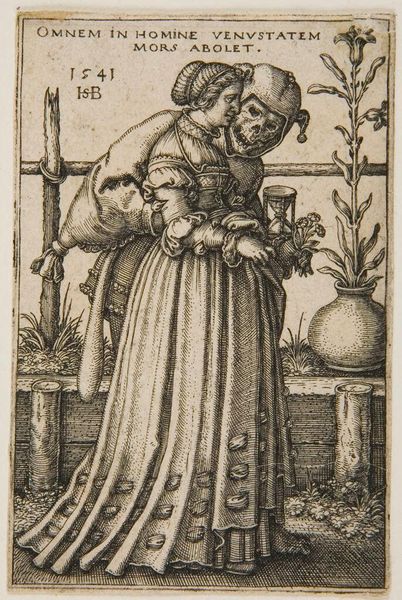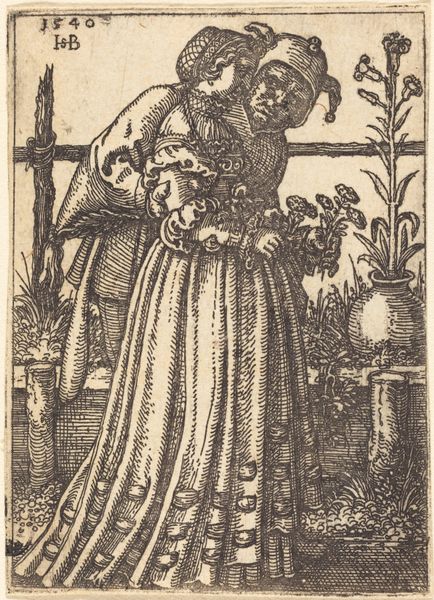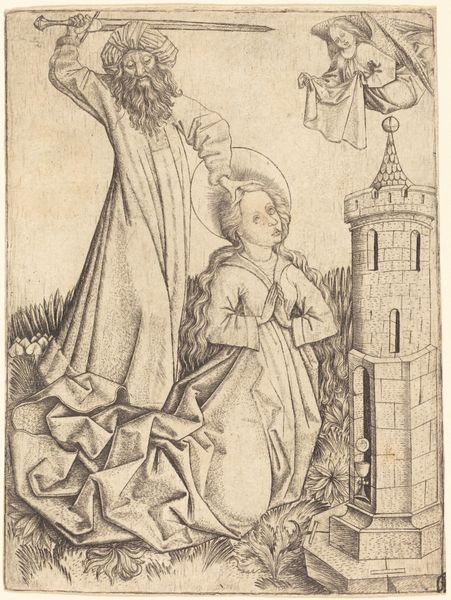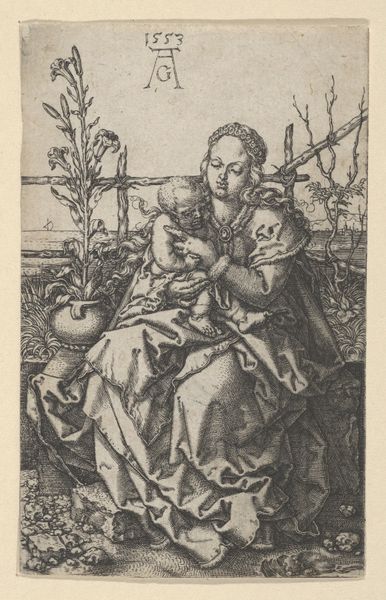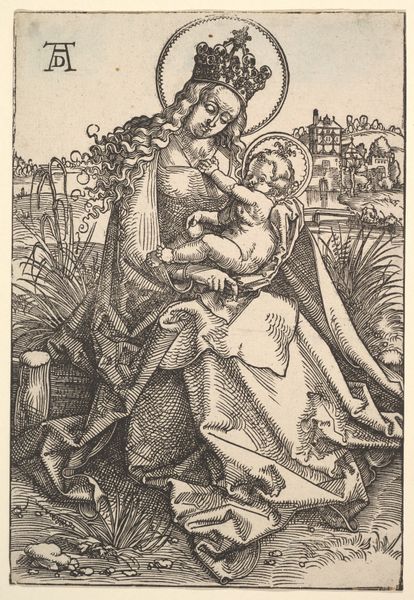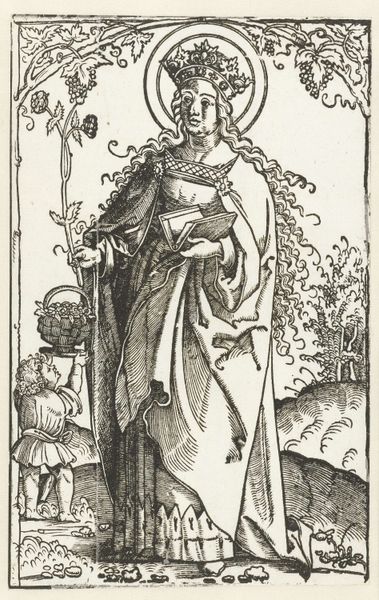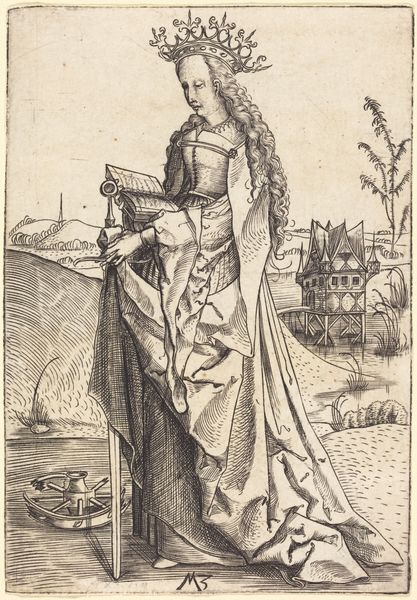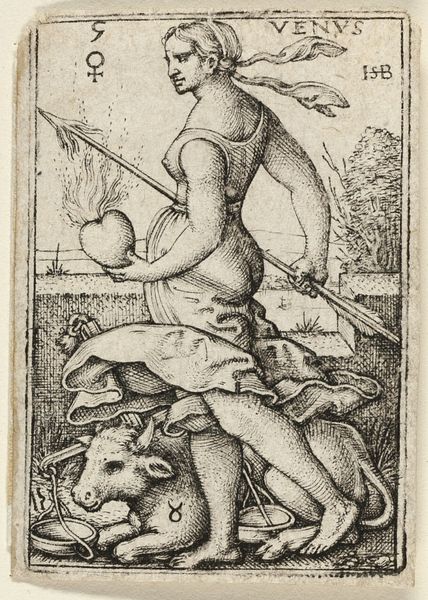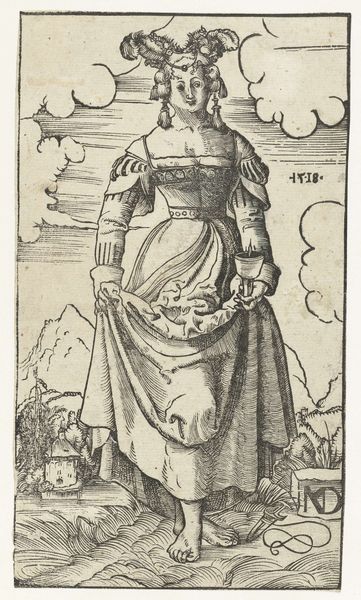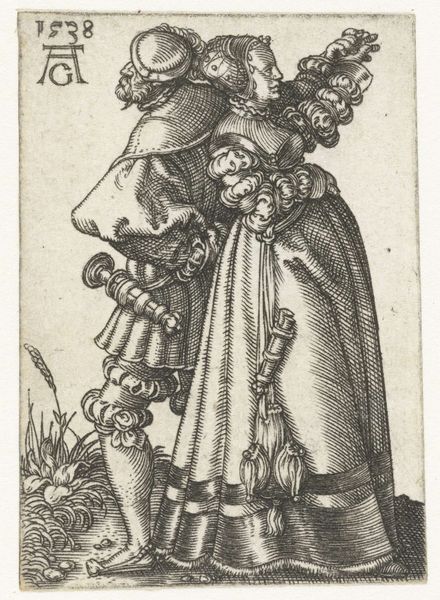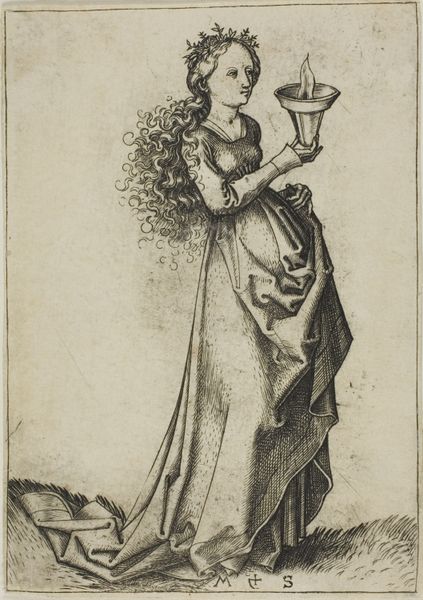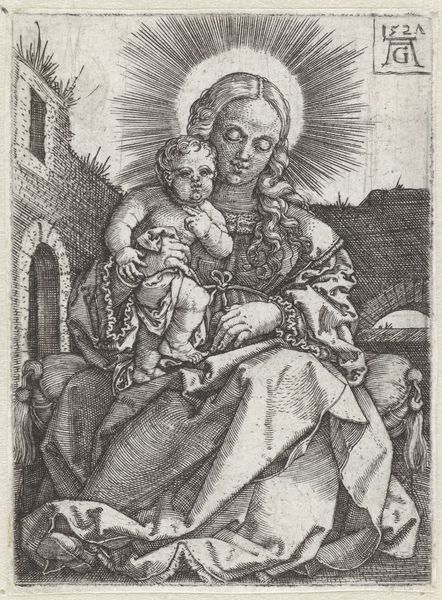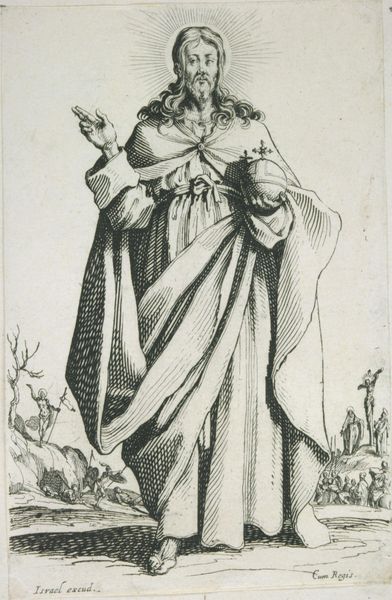
drawing, print, paper, engraving
#
portrait
#
drawing
#
allegory
# print
#
figuration
#
paper
#
form
#
vanitas
#
momento-mori
#
northern-renaissance
#
engraving
Dimensions: 76 × 49.5 mm (image/plate); 78 × 51 mm (sheet)
Copyright: Public Domain
Sebald Beham etched this small yet powerful piece, "The Lady and Death," in 1541, a danse macabre frozen in time. Here, we witness a lady embracing Death himself, depicted as a skeleton, while holding an hourglass. This hourglass is a potent symbol, a "memento mori," reminding us that time slips away, an idea that stretches back to ancient sundials and water clocks, each a quiet herald of our inevitable end. But look closer; this isn't merely a scene of despair. The lady's gesture suggests a complex relationship, perhaps even acceptance. The image speaks of a dance, a recurring motif across cultures. Death, often cloaked and skeletal, appears in medieval morality plays, Renaissance paintings, and even modern cinema. This personification of death holds psychological weight, reflecting our subconscious fears and attempts to grapple with mortality. Consider how the lily, symbolising purity and resurrection, juxtaposes the grim figure of death. This mirrors the cyclical nature of life, death, and rebirth. The lily’s presence is a flicker of hope against the stark reality, a testament to the human spirit's enduring quest for meaning amidst the ephemeral nature of existence.
Comments
No comments
Be the first to comment and join the conversation on the ultimate creative platform.
